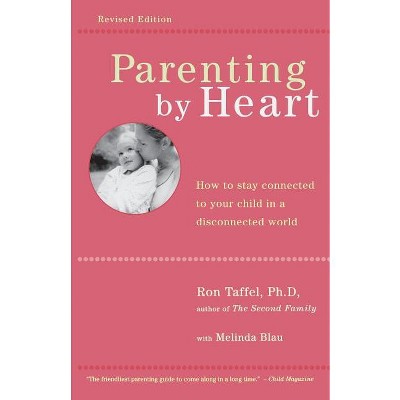Sponsored

A Gate in the Wall - by Melinda Barnhardt (Paperback)
In Stock
Sponsored
About this item
Highlights
- This book shares the story of the Lindeijers, a Dutch colonial family in Indonesia, first during their time as captives of the Japanese during World War II and then during the postwar decades, as they struggled to come to terms with their wartime trauma.
- About the Author: Melinda Barnhardt is an independent scholar, writer, and lecturer in the Netherlands and Japan and has given colloquia for history and East Asian Studies at Wittenberg University in the U.S.
- 239 Pages
- History, Military
Description
About the Book
"The story of the Lindeijers, a Dutch colonial family in Indonesia, first during World War II as captives of the Japanese and then during the postwar decades when they struggled to come to terms with their wartime trauma, is unique in the pathway it traces from wartime hatred to postwar reconciliation-across generations and continents. Their story is one of four children shell-shocked by the Japanese invasion of Java, further traumatized by their father's overseas transport as a Japanese prisoner and their mother's internment camp death. The protagonists speak, as much as possible, for themselves through their documents. The father, in his prohibited POW diary written as unmailed letters to his family, records harsh, brutal treatment but simultaneously reveals a level of complexity among his captors that is unusual in war memoirs. The mother's farewell letter dictated before her death eschews hatred, focusing on a way for her family to move forward. From their records, the father's fellow American, Australian, British, Canadian and Dutch POWs add perspective-as does a Japanese camp liaison, through his camp notebook. And finally, in recorded testimony, the eldest son grapples with the trauma of his family's imprisonments, but also Dutch oppression of Indonesia, stimulating a remarkable response in Japan and Indonesia today."-- Provided by publisher.Book Synopsis
This book shares the story of the Lindeijers, a Dutch colonial family in Indonesia, first during their time as captives of the Japanese during World War II and then during the postwar decades, as they struggled to come to terms with their wartime trauma. The protagonists speak, as much as possible, for themselves through their documents.
The father, in his prohibited POW diary, records harsh, brutal treatment but simultaneously reveals a level of complexity among his captors that is unusual in war memoirs. The mother's farewell letter dictated before her death eschews hatred, focusing on a way for her family to move forward. And finally, in recorded testimony, the eldest son grapples with the trauma of his family's imprisonment, but also the Dutch oppression of Indonesia, stimulating a remarkable response in Japan and Indonesia today. The family's story traces a pathway from wartime hatred to postwar reconciliation--across generations and continents.
Review Quotes
"A Gate in the Wall is an extraordinary book that gives us something that until now we have not had: a prisoner's view of life in a World War II Japanese POW camp. Evert Willem Lindeijer was a Dutch settler colonial who had a doctorate in chemistry from Leiden University and had taught at a leading lyceum in Bandung, Indonesia since 1936. From May 15, 1942 to September 17, 1945, he was incarcerated in Japanese POW camps, first in Bandung and then in Kamaishi in northeastern Japan, and he kept a secret diary the whole time. His journal reveals in great detail the horrible conditions on the 'Hell Ships' that brought him from Southeast Asia to Japan, what he did to survive, how he managed to get the latest war news, how his national origin and ethnicity shaped his relationships with fellow captives, and his surprisingly warm interactions with his captors and local townspeople."-Samuel Yamashita, Henry E. Sheffield Professor of History, Pomona College
"Drawing on letters, which she has contextualized with meticulous research, Barnhardt recounts the experience of their author, Wim Lindeijer, a Dutch civilian in Java, who was transformed by the outbreak of war in 1941 to a soldier and then to a Japanese prisoner. Lindeijer's unmailed letters from prison express vividly the hardships and cruelty but above all the helplessness to which prisoners are subject, and yet we catch glimpses of the humanity of his captors. Barnhardt's account moves beyond the war years to include the efforts of Lindeijer's son to come to terms with his family's experience and to meet and reconcile with his father's Japanese captors. Thanks to Barnhardt's labors, readers get to know this ordinary and yet extraordinarily thoughtful family. A Gate in the Wall left me with the feeling one gets from a good novel, that one will miss spending time with these people."-Sally A. Hastings, professor emerita of history, Purdue University
"This matter-of-fact yet remarkably nuanced secret diary of a Dutch POW-Wim Lindeijer-in a Japanese prison camp in WWII foregrounds the everyday brutality of war alongside the mundane mechanisms that make that brutality survivable. That diary alone is reason to read this book, yet it is what comes after the diary concludes and Wim returns home that makes this book truly remarkable: the story of how this POW's family collectively comes to make sense of their wartime experience and the role Wim's narrative ultimately plays in promoting understanding of the atrocities of war, both in the Netherlands and in Japan. This beautifully edited work is a must read for anyone interested not only in the trauma of war, but also in how we can translate that trauma into healing."-Cynthia Richards, Veler Endowed Chair in English, Wittenberg University and co-editor of Early Modern Trauma: Europe and the Atlantic World
About the Author
Melinda Barnhardt is an independent scholar, writer, and lecturer in the Netherlands and Japan and has given colloquia for history and East Asian Studies at Wittenberg University in the U.S.Shipping details
Return details
Frequently bought together


Trending Non-Fiction















